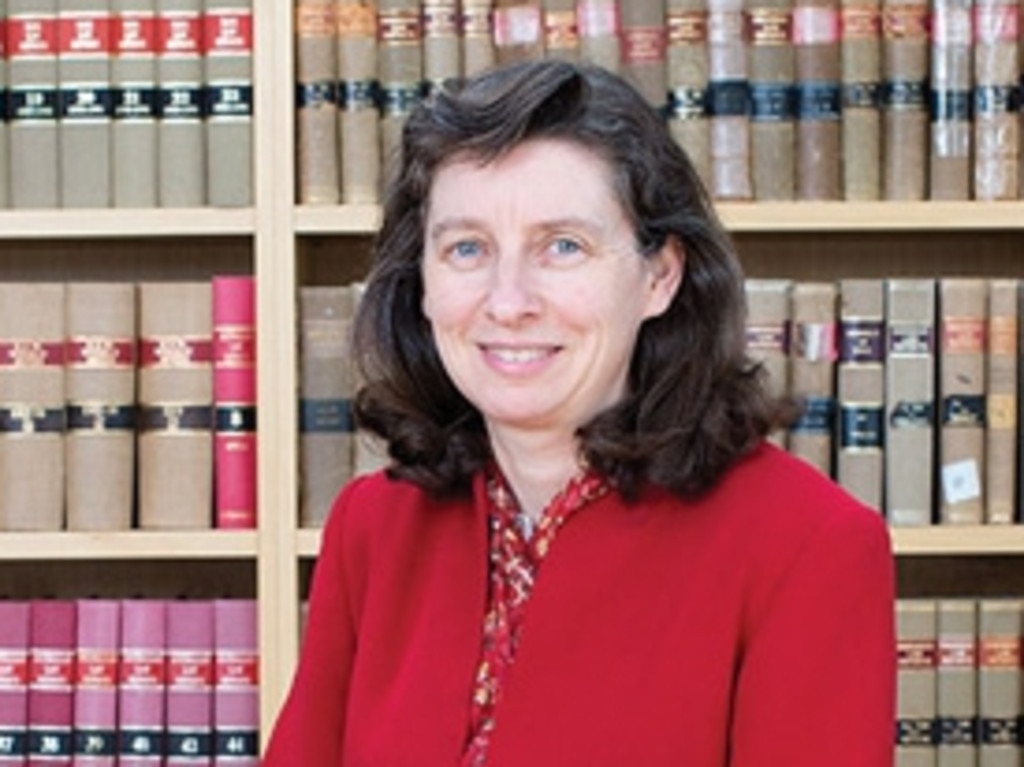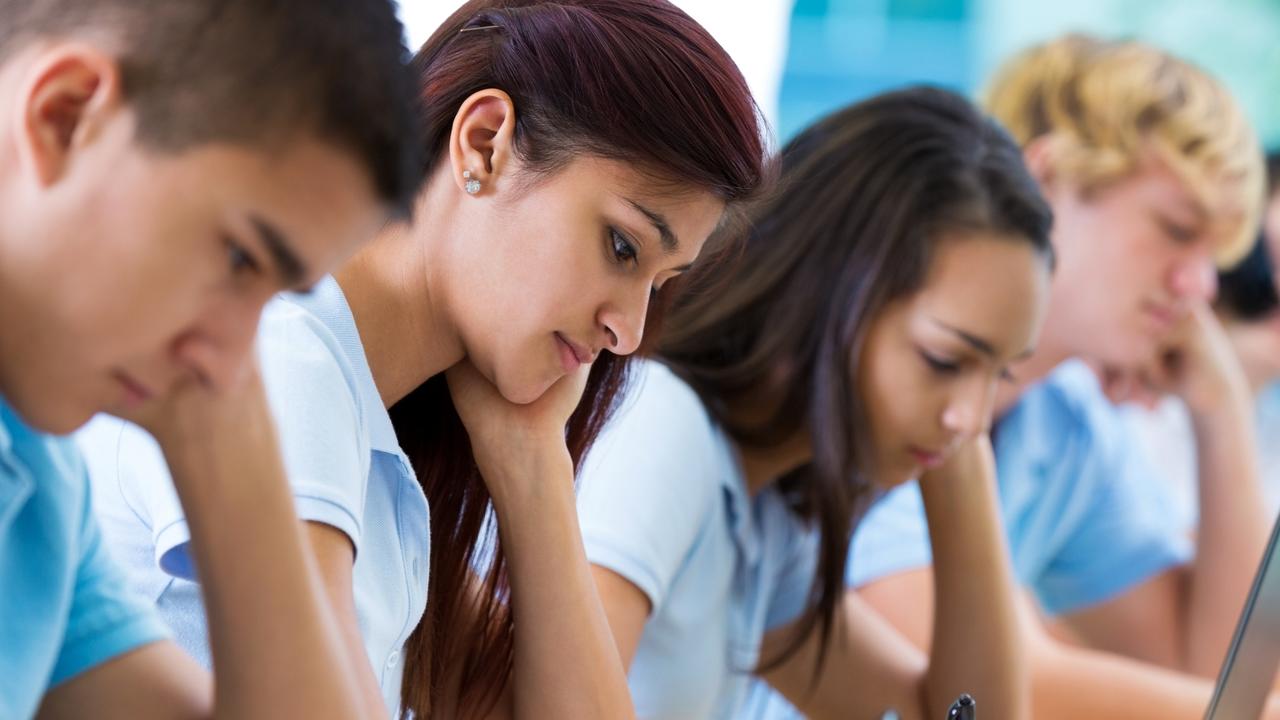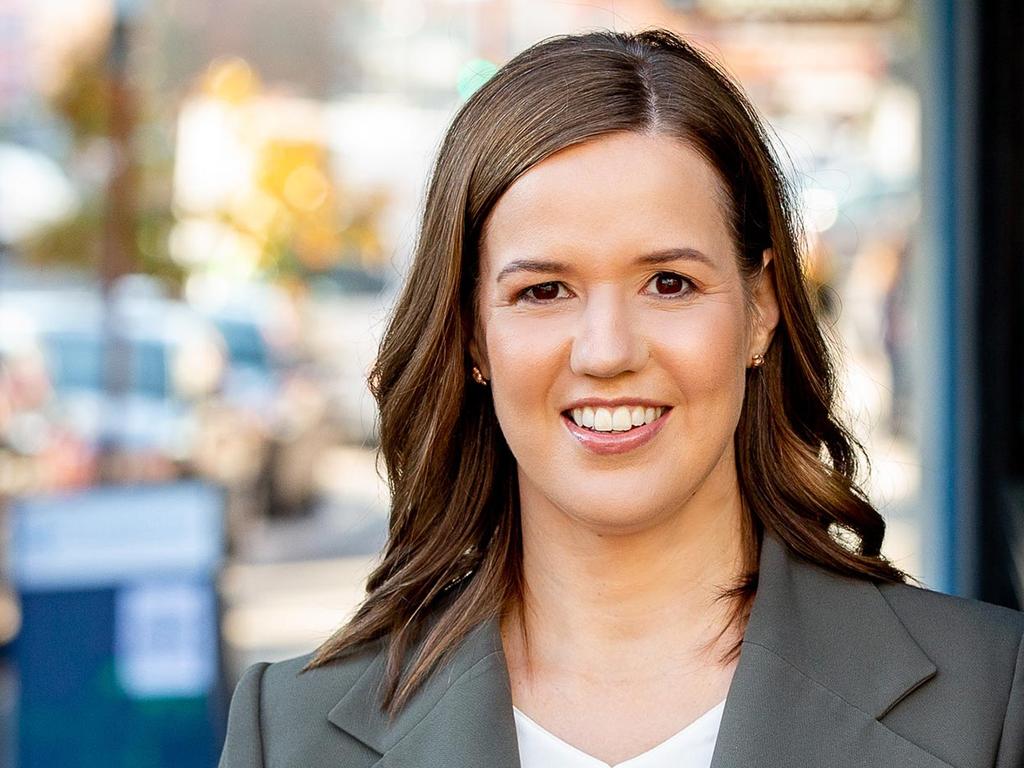Professor Anne Twomey says lowering voting age could ‘politicise’ schools
A leading legal expert has warned that lowering the voting age to 16 could “politicise” schools and divide students and teachers.
Lowering the voting age to 16 could “politicise” schools and divide teachers and students, a leading constitutional law expert has warned.
University of Sydney professor Anne Twomey, appearing before a House of Representatives inquiry into civics education in Australia, said a push to lower the democratic franchise from 18 to 16 had some “upsides” but also contained a sweep of risks.
Chief among them, schools could become political zones, as “political parties see a new market for voters”, she said.
The professor added teachers could be swept up into politics and find themselves accused of political activism.
The inquiry, chaired by Labor Jagajaga MP Kate Thwaites, is conducting hearings into how to support greater democratic engagement and participation in an era of escalating misinformation and disinformation.
“In a time when we’re seeing challenges for democracies across the world, and a rise in mis and disinformation, it’s important that every Australian has the opportunity to be informed about and engaged in our democracy,” Ms Thwaites said when starting the inquiry.

“The committee wants to hear Australians’ experiences of civics education and what we can do better to support democratic engagement and participation.
“So many young Australians are passionate about social and political issues, but they may not have access to relevant and reliable information about democratic and electoral processes.”
Some witnesses, including youth democracy organisation Run For It, have argued the voting age should be lowered to engage youngsters in the democratic process.
“Lowering the voting age is not a groundbreaking idea – this policy has already been implemented across many countries,” the group said in its submission to the committee.
“Argentina, Ecuador and Brazil, who also have compulsory voting, have all lowered the voting age to 16.

“Other countries that have enfranchised 16 and 17-year-olds include Cuba, Nicaragua, Austria, Ecuador, Argentina, Malta, Scotland and Wales.
“These countries have seen meaningful benefits as a result of lowering the voting age, including increased political engagement from young people. In some cases, young people participated in elections at higher rates than older age groups.”
The Greens Party supports lowering the voting age, and independent Kooyong MP Monique Ryan has also expressed support for the idea.
Professor Twomey, a leading expert in constitutional law, said the move could make voting seem more important to 16 and 17-year-olds and trigger more interest in civics education.
But she also said it would be “wrong” to fine school-age teens for not voting, the current system in place for Australia’s compulsory voting laws.
She also flagged issues of “maturity and influence” and said young people were sometimes not as sophisticated as they might believe themselves to be.
“I am very embarrassed by some of the views I had at that age,” she said.

“That also gives me some pause to think as well.
“I really wasn’t as sophisticated as I thought I was.”
Professor Twomey recommended critical thinking courses be included in school curriculums to help youngsters defend themselves from wild conspiracy theories and slovenly thinking on the internet.
She also argued social media companies had a “responsibility” to keep discourse civil.
She said anonymity on the internet was “corrosive” and those participating in online discussion should also post their names.
“You need to do that openly, you need to do that with your name and your face,” she said.
She said social media companies should accept they were a “part of the community” and uphold civil standards on their platforms.




